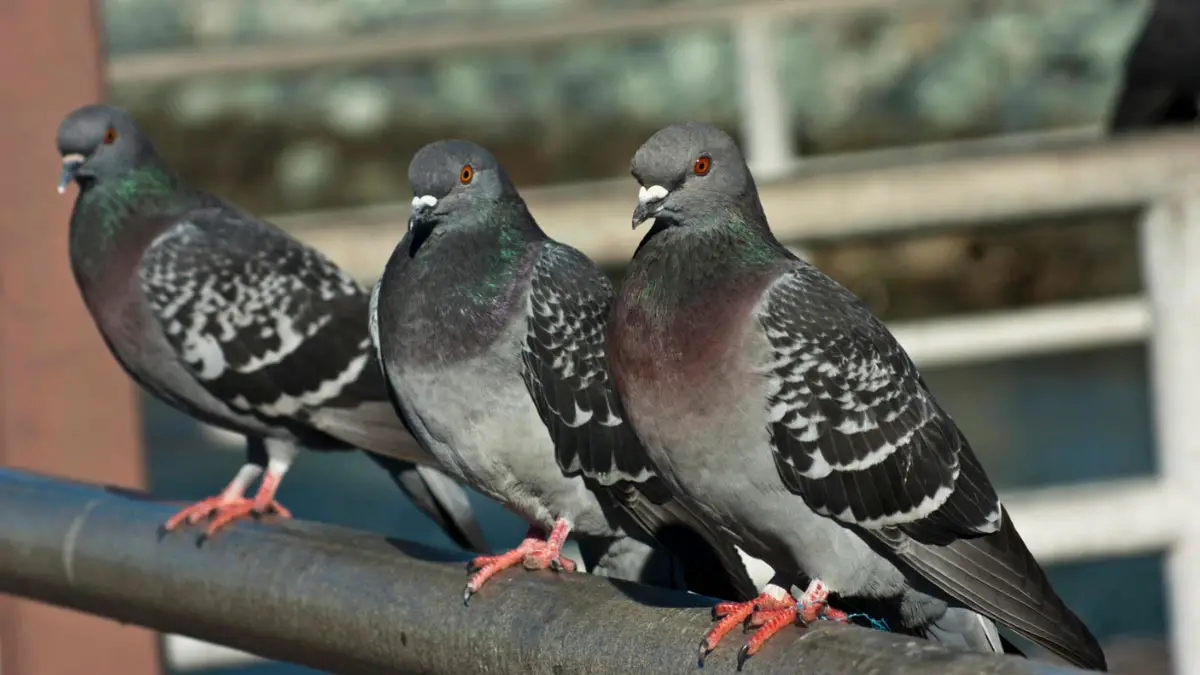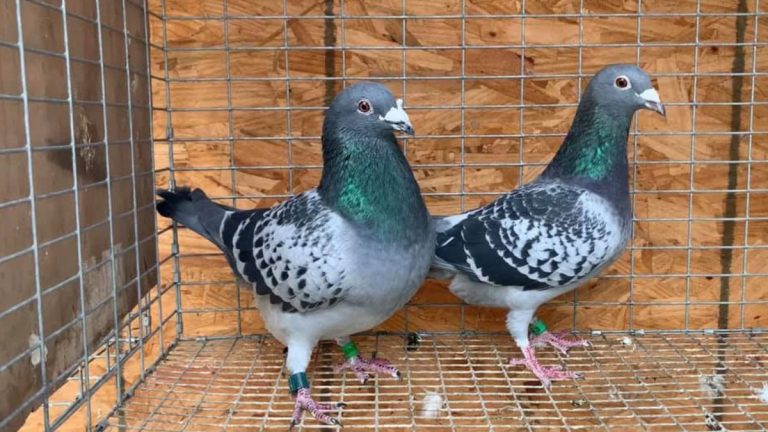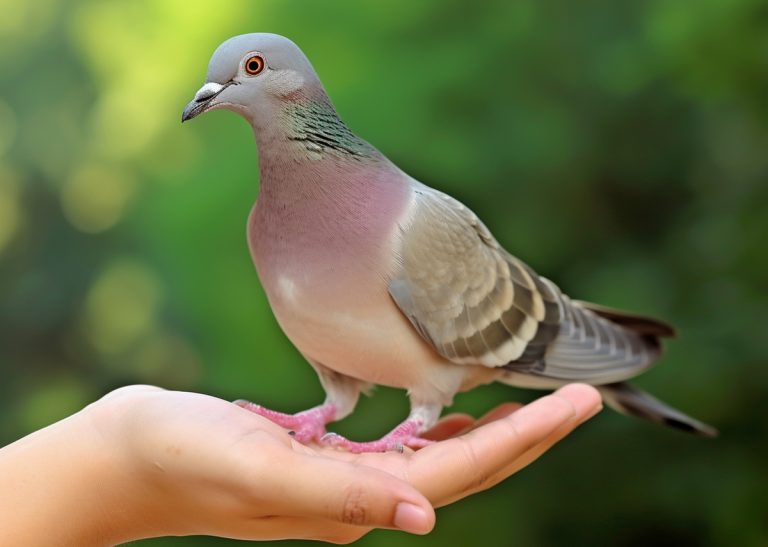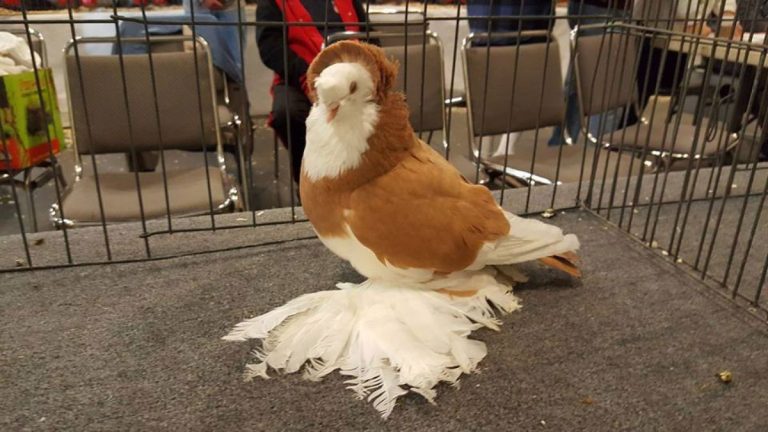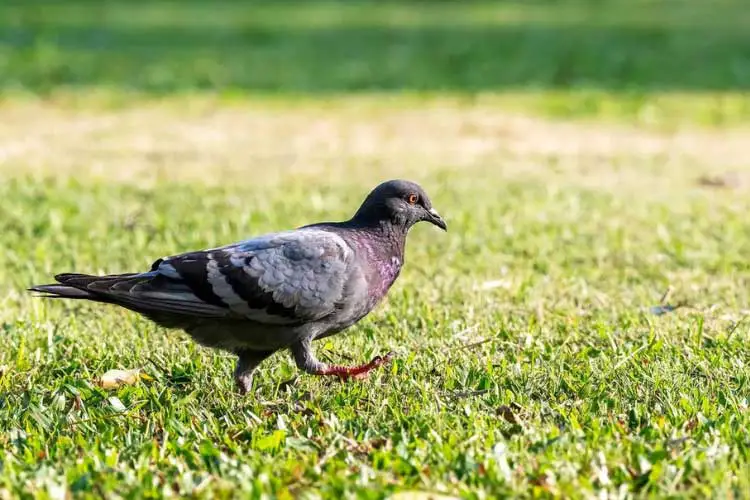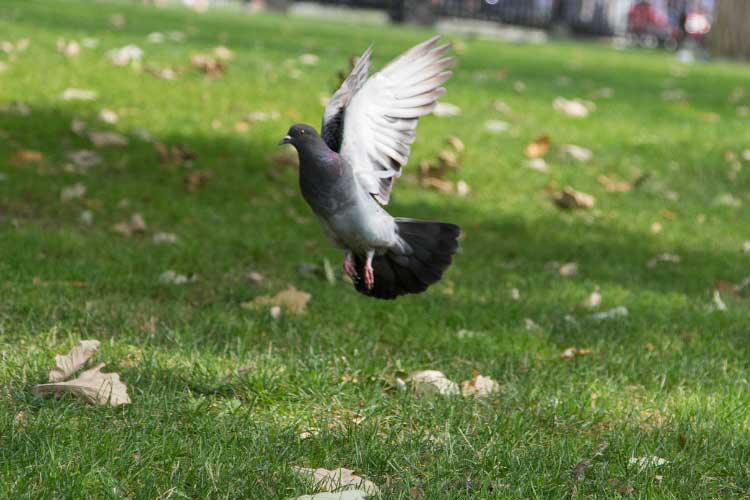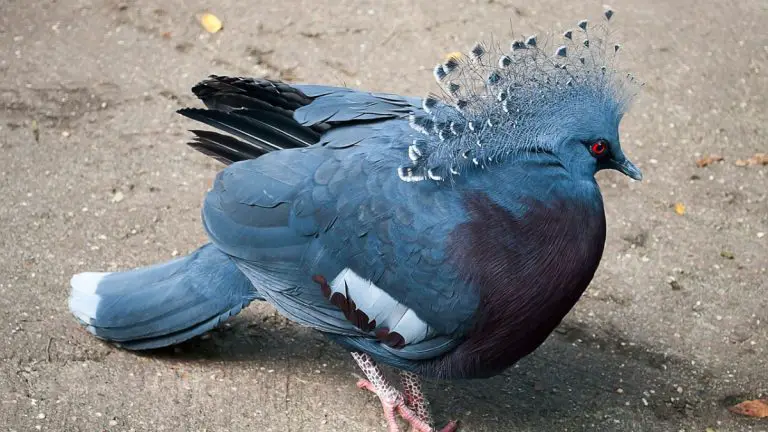The Pigeon’s Immune System: How These Birds Defend Against Disease
The immune system is the body’s defense mechanism that helps protect animals from harmful pathogens. This system is essential for spotting and eliminating foreign intruders that might potentially spread sickness or disease. Pigeons, like all animals, also rely on their immune system to fight off infections and maintain their health.
Pigeons have developed a variety of immune defense mechanisms to deal with the numerous infections they come across in their habitat. These include both innate and adaptive immune responses that work together to identify and destroy any potential threats to the pigeon health.
In this article, we will delve into the world of the pigeon immune system and explore the different mechanisms they use to keep themselves healthy. We will go through the many parts of the pigeon’s immune system. Starting from how they work to what variables might alter how efficient they are. So let’s get going!
Components of the Pigeon’s Immune System
The pigeon immune system components are composed of different segments. Together, these systems protect the bird from different diseases, parasites, and other outside intruders. The innate immune system, the adaptive immune system, and physical barriers are some of these elements.
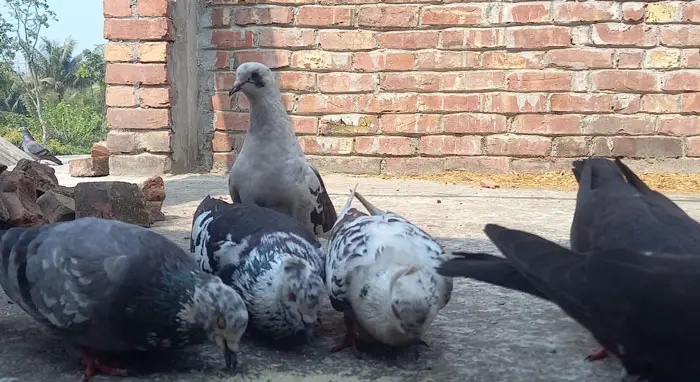
Pigeon’s Immune System: Physical Barriers, Innate Immune System, And Adaptive Immune System
Here’re the activities of different immune systems.
- Physical Barriers: The skin, feathers, and mucous membranes are examples of physical barriers that act as the first line of protection against infections. The mucous membranes also secrete mucus, which can capture and eliminate infections from the body.
- Innate Immune System: The next line of defense is the innate immune system, which offers instant disease resistance against infections. The cells in this system that identify and eliminate infections include phagocytes and natural killer cells.
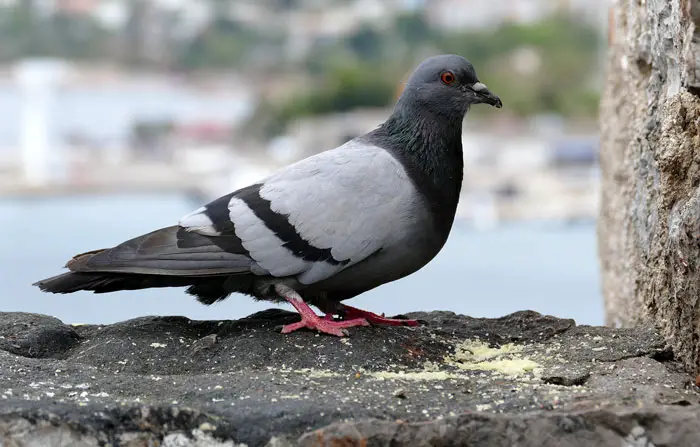
While natural killer cells actively kill infected cells, phagocytes like macrophages absorb and consume foreign intruders.
- Adaptive Immune System: The immune system’s adaptive component offers specialized and ongoing defense against infections. This system consists of a variety of cells, including T and B cells, which can identify and retain information about certain infections.
White Blood Cells Are Essential In The Immune Response
White blood cells are essential for pigeons’ immunological response. T cells and B cells are examples of lymphocytes, a class of white blood cells. B cells create antibodies that can kill viruses, and T cells recognize and assault contaminated cells to aid in the coordination of the immune response.
Avian research institutions state Neutrophils and macrophages are two examples of the other category of white blood cells known as phagocytes.
These cells absorb and digest foreign invaders, assisting the pigeon’s body in getting rid of them. Another type of white blood cell that may detect and destroy contaminated cells directly is the natural killer cell.
Antibodies And How They Function
The pigeon’s immune system is extremely important and depends on antibodies. These chemicals, which are generated by B cells, can detect and eliminate certain infections.
Antibodies work by binding to specific molecules on the surface of the pathogen, preventing the pathogen from infecting other cells.
To aid in the removal of the pathogen from the body, antibodies can also stimulate the immune system’s phagocytes and other cells. To provide enduring defense against infections, the adaptive immune response is fundamentally dependent on the generation of antibodies.
How the Pigeon’s Immune System Works
The immune system of the pigeon functions by a sequence of synchronized actions. They include the identification of the pathogen, activation of immune cells, and pathogen eradication. Let’s explore how the pigeon immune system works in detail now.
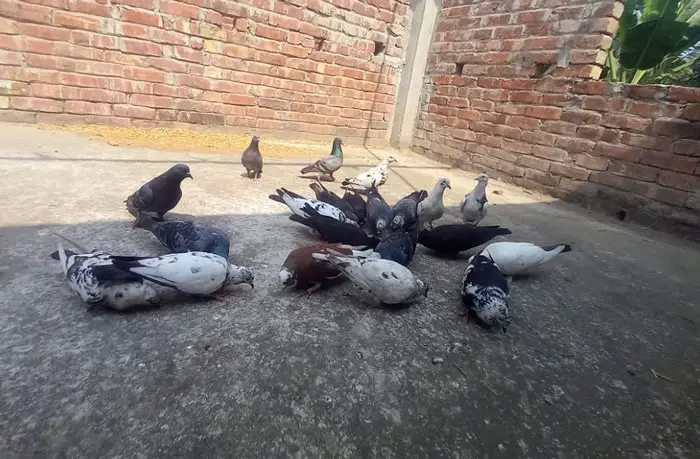
Steps Involved In The Immune Response
The first line of defense is the innate immune system rather than avian medicine. This includes both natural defenses like the skin and mucous membranes as well as generalized immune cells like neutrophils and macrophages.
The infection is engulfed and eliminated by these cells, which stops it from spreading throughout the body.
The adaptive immune system is engaged if the pathogen succeeds in evading the innate immune system. The process includes turning on T and B lymphocytes. They are specialized cells that identify and target particular antigens on the pathogen’s surface.
The humoral response and the cell-mediated response are the two primary components of the adaptive immune response. B cells produce antibodies as part of the humoral response, which attach to the pathogen and signals other immune cells to attack it.
T cells are activated as part of the cell-mediated response, and they directly target and kill infected cells.
The immune system goes through a process of “memory” formation after the pathogen has been destroyed, during which it keeps a record of the pathogen’s antigens. If the same pathogen is encountered again in the future, the immune system will be able to respond more quickly and effectively.
How The Immune System Can Malfunction
The immune system is typically very good at defending the body against disease. But, it can occasionally go wrong, which can cause autoimmune diseases or immunodeficiency. When the immune system mistakenly targets and attacks the body’s tissues, resulting in injury and inflammation, autoimmune avian diseases develop.
Immunodeficiency disorders are brought on by a weakened immune system, which can make the body more prone to infections and illnesses. It is important to understand how the immune system functions to create efficient treatments for a variety of illnesses and disorders.
Factors Affecting the Pigeon’s Immune System
Pigeons need a strong immune system to be healthy and avoid contracting many illnesses. Yet, several variables can impact the pigeon’s immune system’s effectiveness and endurance. Pigeon keepers must have in-depth knowledge about this:
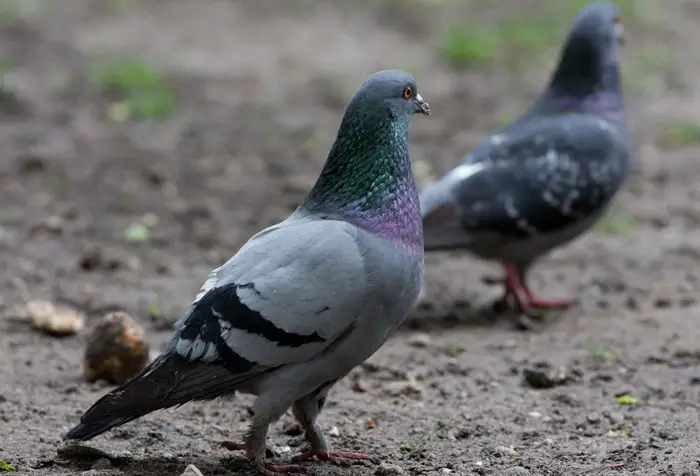
Nutrition
One of the key elements influencing the pigeon’s immune system is nutrition. For the immune system to grow and work properly, a proper diet is required. Vitamin and mineral deficiencies can weaken the immune system and make pigeons more vulnerable to infections and illnesses.
Stress
The avian health organizations suggest that the immune system of the pigeon can also be significantly impacted by stress. Many factors, such as environmental alterations, accidents, illnesses, or even competition, can cause stress. The body releases stress hormones like cortisol and adrenaline in response to stress in pigeons.
Temperature and Humidity
Pigeons are more prone to diseases when temperatures and humidity are high because these circumstances stimulate the growth and spread of germs. Additionally, being exposed to pollutants and toxins can weaken the immune system, making pigeon breeds more vulnerable to illness.
Importance Of Proper Nutrition And Care
Pigeons’ immune systems must be maintained through proper nutrition and pigeon care. To support the immune system’s function, a balanced diet must contain enough of the essential nutrients.
Reducing stress and limiting exposure to pathogens and toxins can both be aided by providing a clean and comfortable living space. Additionally, proper hygiene practices, such as regular cleaning of the pigeon’s living space, can help pigeon immune system and disease prevention.
Disease Prevention Strategies for Pigeons
Pigeons may be kept healthy with the use of several efficient pigeon disease prevention techniques. They include vaccination, biosecurity precautions, and appropriate feeding and care.
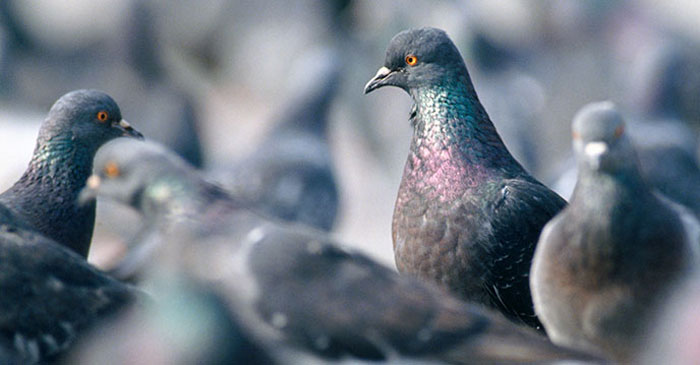
Overview Of The Different Types Of Vaccines And How They Work
Pigeon vaccination is a crucial component in illness prevention. Pigeons can be vaccinated against a variety of diseases, such as paramyxovirus, salmonella, and pigeon pox, whenever they come across any disease susceptibility.
These vaccinations function by inducing an immunological response in bird immunity. This enables them to develop immunity to the illness being immunized against.
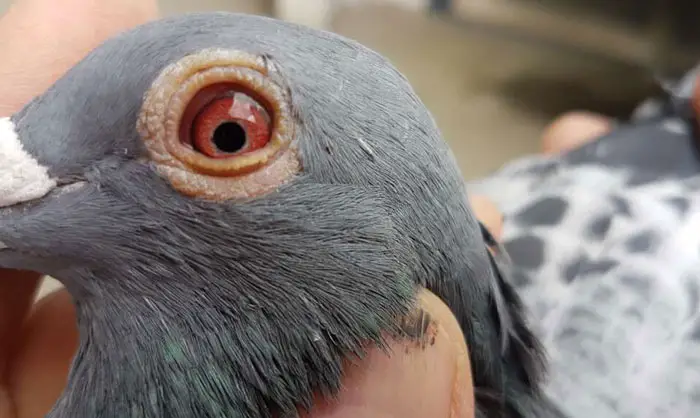
Pigeons can get a variety of immunizations, including subunit vaccines, live attenuated vaccines, and inactivated vaccines.
- Inactivated Vaccines: Inactivated vaccines are made by killing the disease-causing microorganism, such as a virus or bacteria. And then processing it so that it cannot cause disease but can still stimulate an immune response.
- Live Attenuated Vaccines: Live attenuated vaccines are made by modifying the disease-causing microorganism to weaken its ability to cause disease while still retaining its ability to stimulate an immune response.
- Subunit Vaccines: To create a subunit vaccine, a disease-causing microorganism’s particular proteins or carbohydrates that might elicit an immune response are isolated. The vaccine is then made using these ingredients.
Biosecurity Measures To Prevent The Spread Of Disease
The prevention of illness in pigeon breeding and population depends on effective biosecurity measures. These precautions include putting new birds in quarantine, cleaning and disinfecting living and working areas, and minimizing exposure to birds not in the flock.
Proper Nutrition and Care
Proper nutrition and care are crucial to preventing sickness in pigeons. A balanced meal that satisfies the bird’s nutritional requirements helps strengthen the pigeon’s immune system and disease prevention and staves off ailments brought on by starvation.
If you’re interested in learning more about the digestive system of pigeons and the role of visual and acoustic cues in pigeon mating behavior, you may find our articles on pigeons’ digestive system and the role of visual and acoustic cues in pigeon mating behavior helpful. Our article on pigeons’ digestive system explores the intricate processes involved in their digestion and nutrient absorption, shedding light on their specialized adaptations. Meanwhile, our article on the role of visual and acoustic cues in pigeon mating behavior delves into the fascinating ways in which pigeons use visual and acoustic signals to communicate during courtship and mating. These articles provide valuable insights into both the digestive capabilities of pigeons and the fascinating behaviors involved in their mating rituals.Conclusion
This article has explored the fascinating world of the Pigeon immune system functions. We now know that the immune system of the pigeon is comparable to that of other birds and mammals. Innate and adaptive mechanisms together defend the bird against dangerous infections.
To advance the health of pigeons and other birds, more study and instruction are required on avian health issues and illness prevention.
We can create more effective preventative and therapeutic measures for illnesses that have the potential to have catastrophic consequences on bird populations. It can be done by better understanding how pigeon immune system works.
There are several resources accessible for individuals who are interested in learning more about the immunity and health of pigeons. Online articles, books, and scholarly magazines are all excellent places to start.
Also, speaking with avian veterinarians and other professionals in the area may be a great way to gain additional knowledge!
